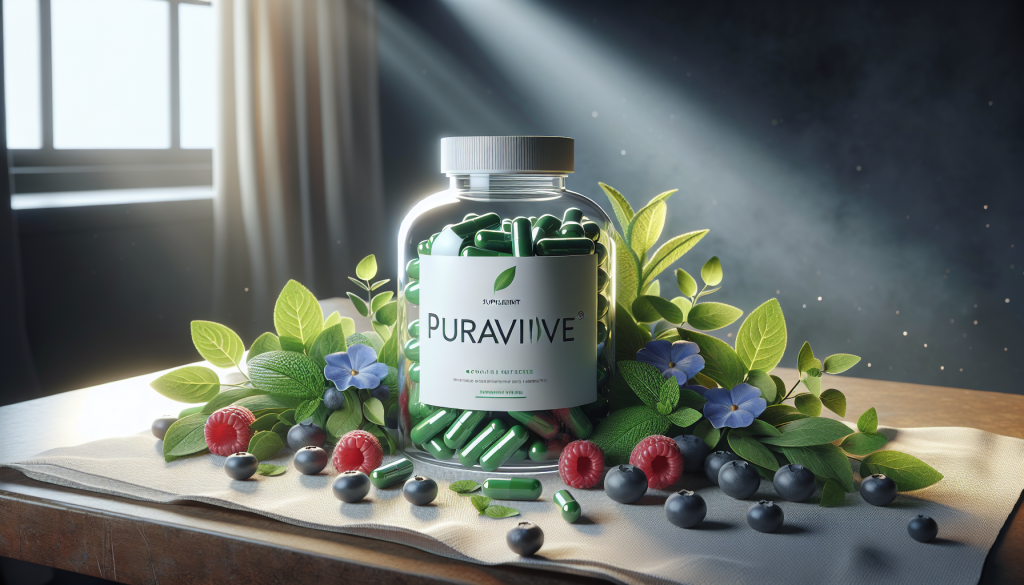
Puravive is capturing the interest of many within the wellness community, particularly those focused on weight management and overall health betterment. Marketed primarily as a dietary supplement, Puravive positions itself as a natural solution to revitalize and enhance one’s health. However, a critical eye towards its claims, ingredients, and overall impact is warranted before disseminating advice to potential consumers.
The product is formulated to increase brown adipose tissue (BAT), which is suggested to burn calories more efficiently than white fat, thereby speeding up weight loss. Puravive’s angle is grounded in the concept of leveraging the body’s innate mechanisms for a more natural weight loss process. This proposition aligns with the rising consumer demand for health products that align with bodily processes without the dependency on pharmaceuticals.
However, despite this narrative, thorough analyses of Puravive’s efficiency raise concerns. Notably, Puravive parallels a former supplement known as Exure, which has been questioned for its legitimacy in the past. The ingredient list and dosage specifications bear an uncanny resemblance to Exure’s, which failed to deliver on its promises owing to the suboptimal dosages that fell below the threshold of demonstrated health benefits in credible studies. Furthermore, the purported benefits of these ingredients for activating BAT and contributing to weight loss have been under scrutiny. Findings in animal or cell studies may not readily translate to human health outcomes, painting a dubious picture for Puravive’s weight loss narrative.
In the dialogue of weight loss supplements’ efficacy, it is essential to note the distinction between generating heat (thermogenesis) and burning calories for weight reduction. While BAT is indeed associated with heat generation, the extrapolation to significant calorie burning and consequential weight loss in humans lacks scientific validation. BAT constitutes a minimal portion of adult body weight, and the current understanding and technology do not suggest an ability to significantly alter this percentage to effect weight loss.
In terms of ingredients, Puravive includes a variety of constituents that, in correct dosages, could aid in controlling blood sugar levels—a boon for those with diabetes. Nevertheless, the doses in Puravive likely fall short of being beneficial. Inclusion of elements such as berberine, while potentially therapeutic, introduces further complications due to possible interactions with other medications.
The cost of Puravive is an additional factor to consider. At $60 per month, it is costlier than high-quality, standalone berberine supplements, which are available for approximately $9-$10 per month. The cost-benefit ratio of Puravive thus becomes a point of contention, especially when more affordable and potentially more effective options are accessible.
Turning to the consumer experience, the narrative is mixed. While some report life-changing weight loss results, others remain skeptical of the supplement’s ability to deliver on its claims. These conflicting testimonies necessitate a reminder of individual variability in response to supplements and the importance of managing expectations.
Given the information at hand, we find that Puravive, while not overtly hazardous—with its safety rating graded a “B” due to mostly safe ingredients—its effectiveness is questionable. As such, the product receives an “F” rating concerning its price to efficacy ratio.
Prospective buyers should also note the sobering account of a consumer who suffered acute liver failure possibly linked to supplement use—a cautionary tale underscoring the gravity of choosing and using supplements wisely. It is imperative to consult with healthcare providers before embarking on any new supplement regimen.
In conclusion, Puravive presents a less-than-convincing choice for those on a quest for weight loss or improved health via dietary supplements. While enticing in its promotion of natural ingredients and overall holistic health benefits, the lack of substantial evidence to support its weight loss efficiency, questionable dosage levels, and higher-than-average costs suggest consumers might be better served exploring alternative options better grounded in scientific research and verifiable success.